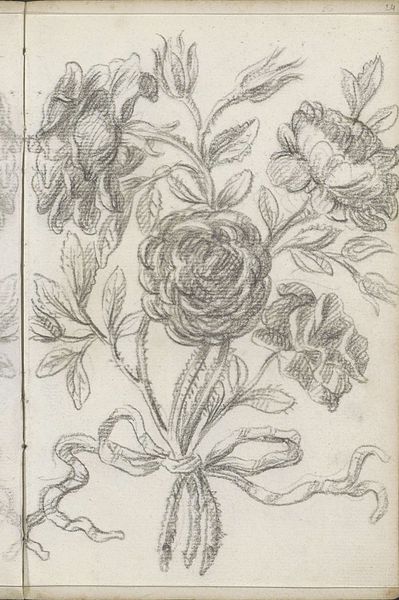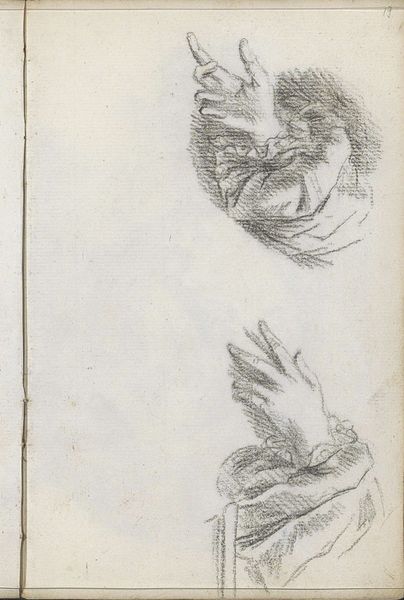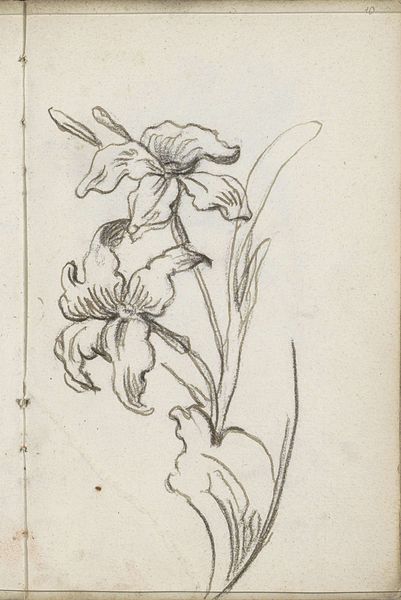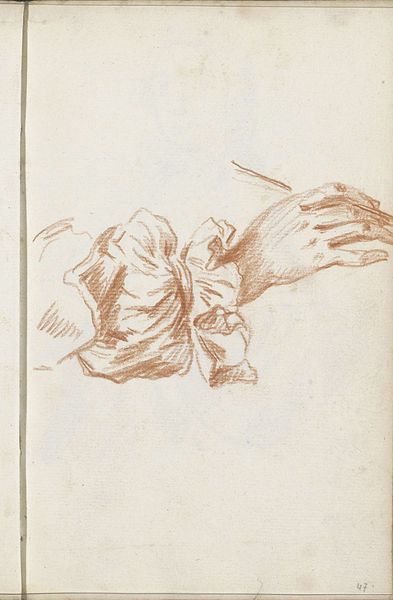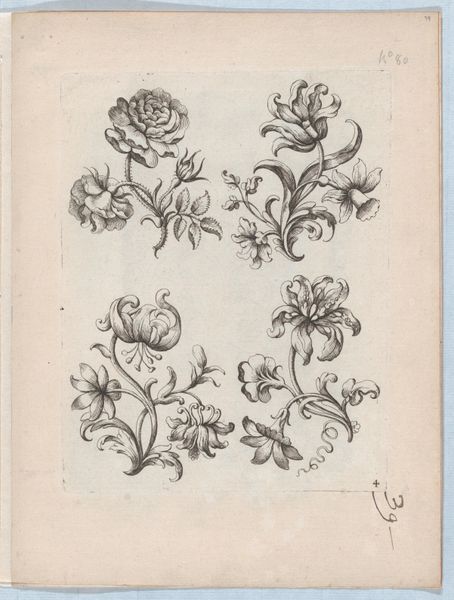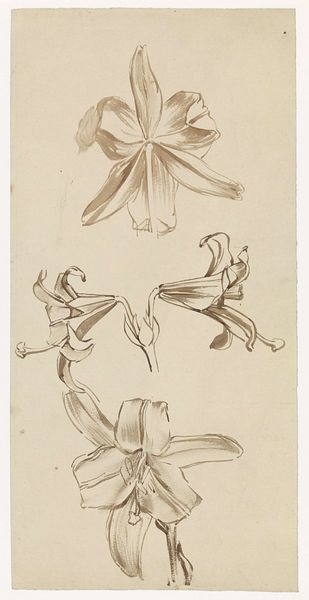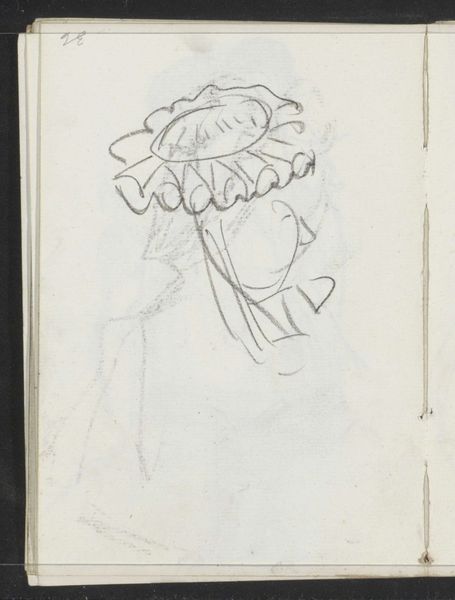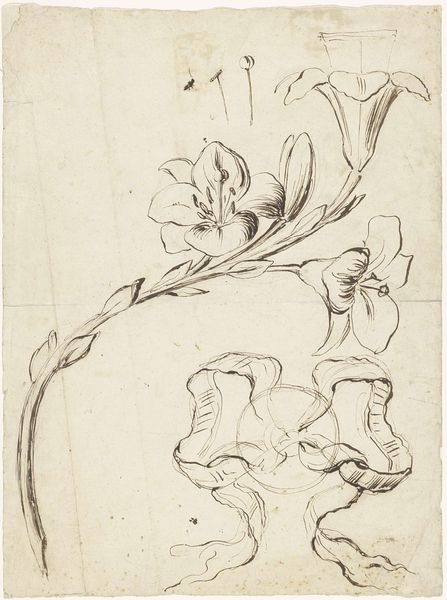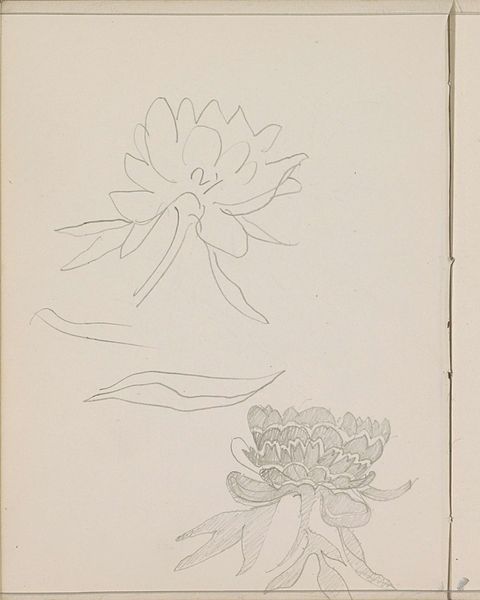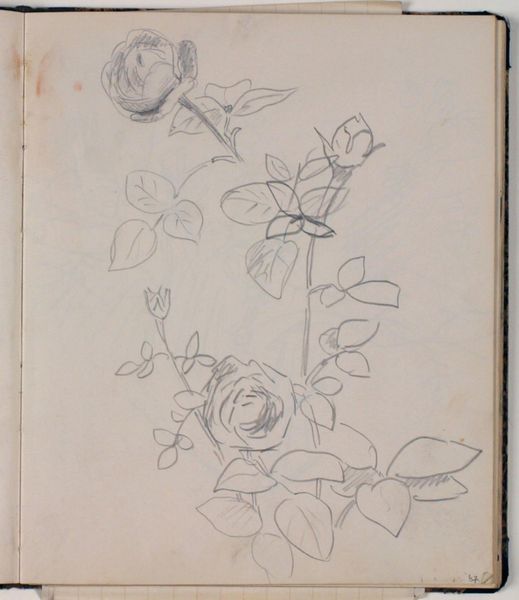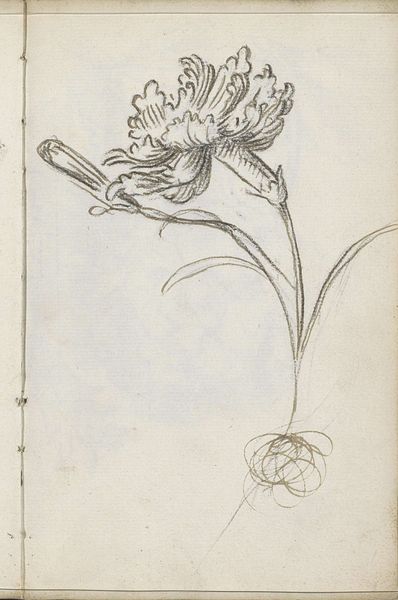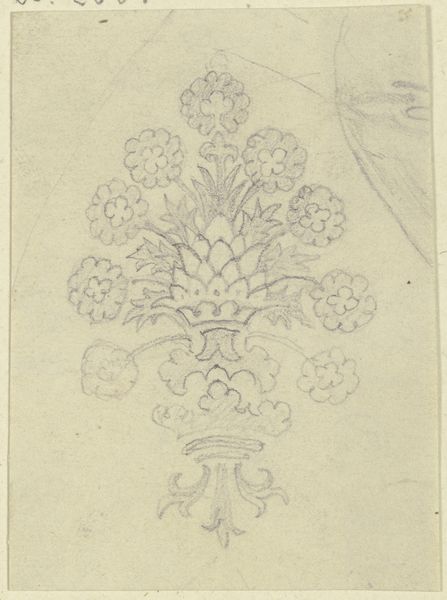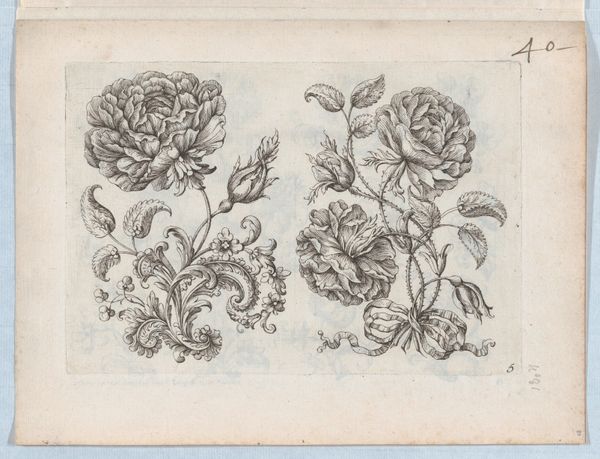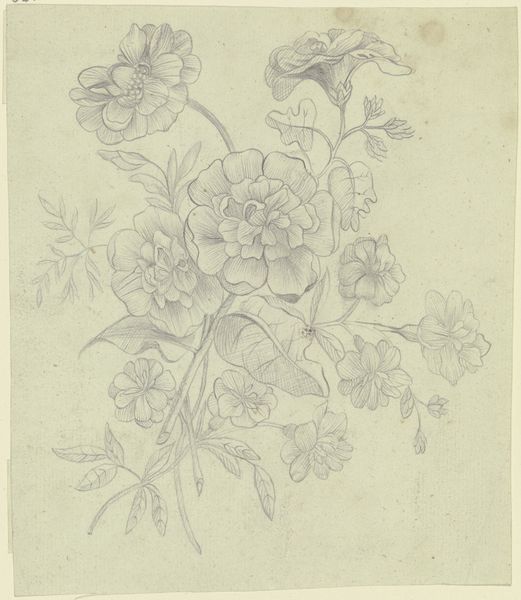
drawing, paper, pencil
#
portrait
#
drawing
#
pencil sketch
#
paper
#
geometric
#
pencil
Copyright: Rijks Museum: Open Domain
Here we see 'Two Roses' sketched by Petrus Johannes van Reysschoot in the 18th century, a deceptively simple image. The rose, a bloom heavy with symbolism, has wound its way through human consciousness for millennia. In ancient Greece, it was associated with Aphrodite, goddess of love. As Christianity rose, the rose became linked to the Virgin Mary, embodying divine love and purity. We find echoes of the rose in countless works of art, from Renaissance paintings to modern-day photography. Think of Botticelli’s ‘Birth of Venus,’ where roses fall from the heavens, or the symbolic use of roses in vanitas paintings. In the subconscious, the rose evokes powerful emotions: love, desire, beauty, and the fleeting nature of existence. It is no coincidence that the rose appears in many cultural contexts during celebrations but also funerals. The rose is not merely a flower, but a vessel of collective memory. It is a testament to our enduring fascination with beauty, love, and mortality, resurfacing in art across epochs.
Comments
No comments
Be the first to comment and join the conversation on the ultimate creative platform.
